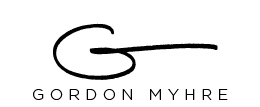Seventy years ago today my father climbed down a rope ladder and jumped into a landing craft bound for hell. Hell, in this case, was a beach in Normandy, France code-named Omaha. Dozens of world leaders are gathered there today to commemorate the seventieth anniversary of the D-day invasion, an event generally regarded as the beginning of the end of Hitler’s Germany.
Whenever anyone tried to refer to my father as a hero he would always give the same reply. The heroes are the ones that didn’t make it back home. This was all he would say. If I tried to get him to talk about the war he would answer with silence.
When he was in his seventies, we took a week-long canoe trip on the Suwannee River. We camped along the river bank and at night around the campfire, we talked about many personal things but never once about the war. On the last night of the trip, I asked him to put his hand out, palm up. In his hand, I deposited some small stones that came from the beach in France code-named Omaha. I thought that I might finally be able to get him to talk a little about his war experience. He put the stones in his pocket and stared silently into the campfire. After a few minutes, he stood up, walked slowly toward the tent, and went to bed.
Not once, during the rest of his life, did he ever speak about the stones from that beach in Normandy I so lovingly placed in the palm of his hand.
One morning a few years ago, I stopped in to say good morning before heading off to work. He was reading the newspaper and looked up at me with anger in his eyes that peered through his scratched and taped-up glasses. Then in a voice that was as serious as I’d ever heard from him, he said, “There’s a story in the paper here that says some crazy people claim that the holocaust never happened, that it’s all made up! What’s wrong with these people? How could they say that? I walked through the gates of one of those camps shortly after we liberated it. I saw what they did. I was there.”

